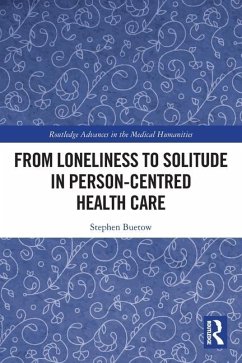
Relational Care
Improving Communication in Healthcare
Versandkostenfrei!
Versandfertig in 1-2 Wochen
167,99 €
inkl. MwSt.
Weitere Ausgaben:

PAYBACK Punkte
84 °P sammeln!
Relational Care focuses on how people working in and around healthcare can improve the delivery of whole person care. This text integrates Systems Theory and a range of communication tools to support readers in working collaboratively and developing individualized road maps for difficult conversations. Focusing on the relationships between patient, family, and clinician, known as the Relational System, the authors explore how effective communication in healthcare can improve the well-being of all. Beginning with theoretical chapters, the Personal System is described as body, mind, and spirit. ...
Relational Care focuses on how people working in and around healthcare can improve the delivery of whole person care. This text integrates Systems Theory and a range of communication tools to support readers in working collaboratively and developing individualized road maps for difficult conversations. Focusing on the relationships between patient, family, and clinician, known as the Relational System, the authors explore how effective communication in healthcare can improve the well-being of all. Beginning with theoretical chapters, the Personal System is described as body, mind, and spirit. Using both Systems encourages readers to see the whole person as they practice. The book incorporates how relational practice improves care in topics such as grief, end-of-life care, stress, and burnout, giving bad news and resolving conflict. Each chapter includes case studies, reflective questions, and prompts for critical thinking to help the reader embed their learning. This practice-changing textbook will be useful to a range of health practitioners, including nurses, Physician Assistants, physicians, and more. It can be used as a supplemental reading for medical interviewing and communications courses.













